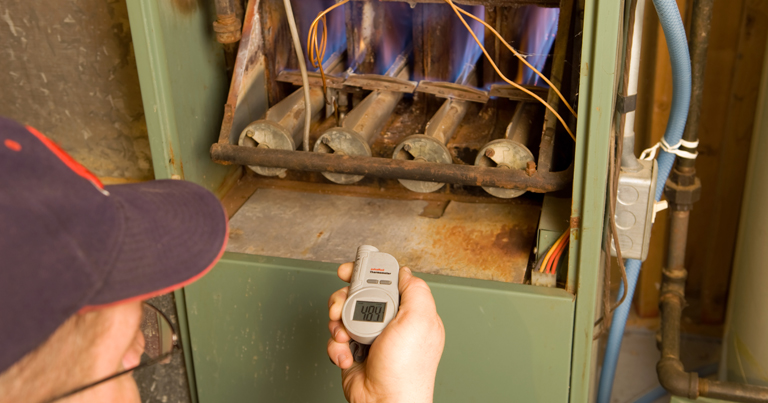A properly functioning HVAC system is essential for any household. However, like all mechanical systems, HVAC units have a finite lifespan. Helping customers understand when to replace their units can significantly impact their comfort, utility bills, and repair costs.
Assess age of unit
The U.S. Environmental Protection Agency’s Energy Star program recommends homeowners replace furnaces or boilers that are more than 15 years old and air conditioners or heat pumps more than 10 years old.1 While regular maintenance can help extend the life of your customer’s systems, even the best-maintained units will eventually reach a point where replacement becomes more economical than repair.
Explain energy savings
It’s important to explain to homeowners that one of the primary benefits of replacing an old HVAC system is the potential for significant energy savings. Modern HVAC systems are designed to be more energy-efficient than older models. They feature advanced technology such as variable-speed motors and improved insulation, which means they use less energy to heat and cool homes effectively.
Older systems often operate at a lower efficiency than newer models. So, replacing an outdated unit with a new, high-efficiency model may reduce your customer’s energy bills by up to 20% or more, depending on the age and condition of their current system.2
Note future repair costs
Not only will older HVAC systems start to require more frequent repairs, but older parts may become harder to find, leading to higher repair costs. Frequent breakdowns can also disrupt the comfort of your customer’s home. Encouraging them to invest in a new system can help them avoid these frustrations. Plus, HVAC systems often come with warranties that cover parts and labor for a certain period, which can help to further reduce unexpected expenses.
Review benefits provided by newer systems
One of the most common complaints of customers with older HVAC systems is difficulty maintaining a consistent temperature throughout their homes. Variations in heating and cooling can lead to hot or cold spots, making it hard to achieve an even, comfortable temperature. Newer systems offer improved temperature control and advanced zoning options, which allow them to set different temperatures in different areas of their homes. This can not only enhance their comfort but also help them to manage energy use more efficiently.
Share positive impact on the environment
Along with saving money on their utility bills, many homeowners today are concerned about their environmental impact. Replacing their old HVAC system with a newer, energy-efficient model has significant environmental benefits. Due to their improved efficiency, new systems produce fewer greenhouse gas emissions and have a smaller carbon footprint.3
Encouraging your customers to replace their HVAC systems can help them save significantly on utility bills, lower repair costs, and have a more comfortable home environment. Opting for a modern, high-efficiency HVAC unit can result in improved performance and reduced energy consumption.
Learn how Aqua+ financing can help make upgrading your customers’ HVAC systems more affordable. Contact us today to experience the power of the plus:
877-717-9494
[email protected]
Aqua Finance, Inc. is an Equal Housing Lender.
